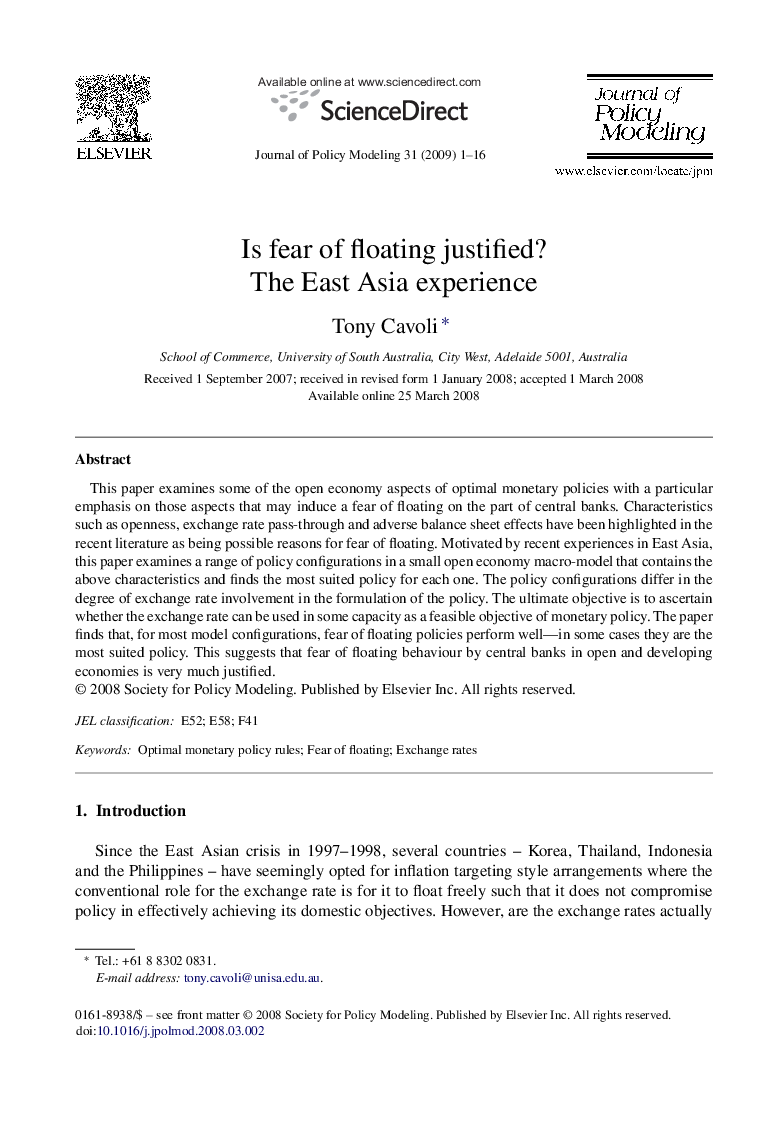| Article ID | Journal | Published Year | Pages | File Type |
|---|---|---|---|---|
| 968123 | Journal of Policy Modeling | 2009 | 16 Pages |
This paper examines some of the open economy aspects of optimal monetary policies with a particular emphasis on those aspects that may induce a fear of floating on the part of central banks. Characteristics such as openness, exchange rate pass-through and adverse balance sheet effects have been highlighted in the recent literature as being possible reasons for fear of floating. Motivated by recent experiences in East Asia, this paper examines a range of policy configurations in a small open economy macro-model that contains the above characteristics and finds the most suited policy for each one. The policy configurations differ in the degree of exchange rate involvement in the formulation of the policy. The ultimate objective is to ascertain whether the exchange rate can be used in some capacity as a feasible objective of monetary policy. The paper finds that, for most model configurations, fear of floating policies perform well—in some cases they are the most suited policy. This suggests that fear of floating behaviour by central banks in open and developing economies is very much justified.
